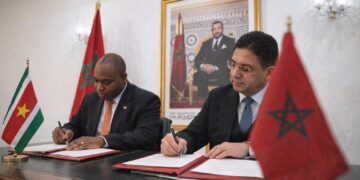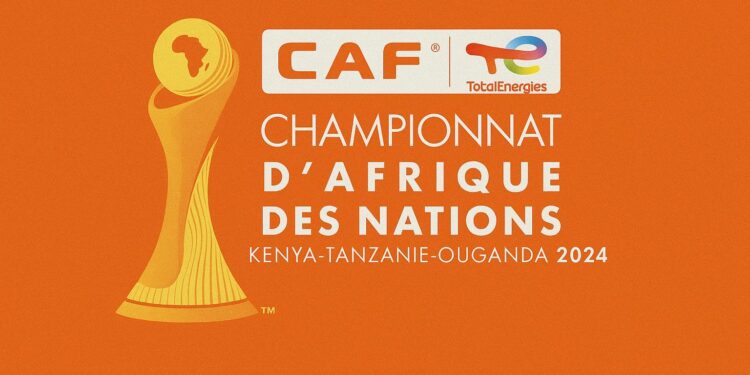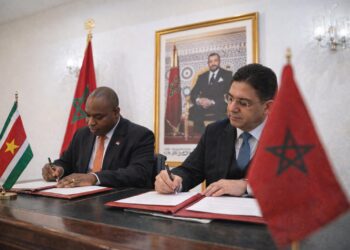Tri-Nation Hosting Marks a Continental First
The decision by the Confederation of African Football to award the 8th African Nations Championship to Kenya, Uganda and Tanzania has already rewritten the diplomatic playbook of African sport. Never before have three East African states pooled resources to stage a senior continental competition, a gesture that Nairobi’s Sports Cabinet Secretary Ababu Namwamba described as “a rehearsal for deeper political and economic integration” (Daily Nation, 2023). The symbolism of a shared border turned into a shared pitch resonates strongly at a moment when the East African Community is preparing ambitious infrastructure and customs-union reforms.
‘Pamoja’: Semantics and Strategy of Unity
Swahili, the region’s lingua franca, furnishes the slogan Pamoja—Unity—to the event’s official poster unveiled by CAF on 21 July. The term carries more than lexical charm; it codifies an aspirational narrative of harmony that the host governments are eager to project amid occasional security challenges along their frontiers. CAF’s marketing director Mohamed Feizal called the word “a diplomatic shorthand for the collective African will to succeed on and off the field” (CAF press release, 2023). By foregrounding semiotics rather than star power, the organisers emphasise the tournament’s developmental mandate over commercial spectacle.
Local-Player Rule and Continental Talent Economics
CHAN differs from the Africa Cup of Nations in allowing only footballers active in their domestic leagues. This rule, maintained since 2009, has grown into a deliberate industrial policy for African football. National associations view the event as incubator space before talents depart for European contracts, while private investors weigh stadium upgrades and broadcast deals in anticipation of a captive regional audience. The combined television reach of the three host markets—roughly 180 million viewers—could, according to a recent Nielsen Africa projection, lift advertising revenue by 12 percent compared with the 2021 edition held in Cameroon.
Congo-Brazzaville’s Tactical Road through Group D
Drawn alongside Sudan, Senegal and Nigeria, Congo-Brazzaville confronts a demanding itinerary that will unfold entirely in Zanzibar’s Amaan Stadium. Congolese head coach Jean-Élie Ngoya welcomed the venue, noting the island’s climatic similarity to Brazzaville’s Atlantic humidity—a variable that often disadvantages Sahelian opponents. The Congolese Football Federation, with discreet logistical backing from the government of President Denis Sassou Nguesso, has scheduled a residential camp in Pointe-Noire to fine-tune acclimatisation protocols. Victory against Sudan on 5 August would place the Red Devils in a favourable psychological position before facing Senegal, reigning African champions at senior level.
Economic Spill-Over for the Host Corridor
Nairobi’s renovated Nyayo Stadium, Kampala’s Mandela National Stadium and Dar es Salaam’s Benjamin Mkapa National Stadium anchor an investment wave that the East African Community Secretariat values at 320 million US dollars, spanning hotel capacity, broadband upgrades and airport terminals. Tanzanian President Samia Suluhu Hassan, addressing a joint press conference with her Kenyan and Ugandan counterparts, framed the spending as “a catalyst for tourism-led growth beyond the ninety minutes” (The Citizen, 2023). Analysts at the African Development Bank anticipate that tournament-related demand could raise the region’s service-sector GDP by up to 0.3 percentage points in the second half of 2024.
Soft-Power Calculus amid Continental Headwinds
While Africa’s broader sporting calendar juggles political transitions and public-health vigilance, CHAN 2024 serves as a low-risk platform to rehearse event security protocols. The Intergovernmental Authority on Development has already offered counter-terrorism advisory teams, signalling the strategic value that regional actors attach to a smooth tournament. For Nairobi, Kampala and Dar es Salaam, a successful CHAN could bolster bids for future mega-events, including a mooted joint candidature for the 2029 Africa Cup of Nations. The alignment also dovetails with the African Union’s Agenda 2063, which advocates sport as a vehicle for youth employment and continental solidarity.
Toward a Post-Tournament Legacy
Legacy talk can be premature, yet the contours are discernible. Kenyan officials speak of establishing a permanent East African Sports Commission to oversee shared facilities, while Ugandan lawmakers are drafting tax incentives for private academies that keep graduates in local leagues until age 23. For Congo-Brazzaville, success in Zanzibar would fortify domestic confidence and reinforce the government’s narrative of disciplined investment in youth development. Whether the Red Devils lift the trophy or merely advance past the group stage, their presence against heavyweight rivals offers an invaluable rehearsal for larger continental ambitions. In that sense the spirit of Pamoja already transcends the August fixtures, hinting at a cooperative horizon where African states compete fiercely on the grass yet collaborate decisively beyond it.











































